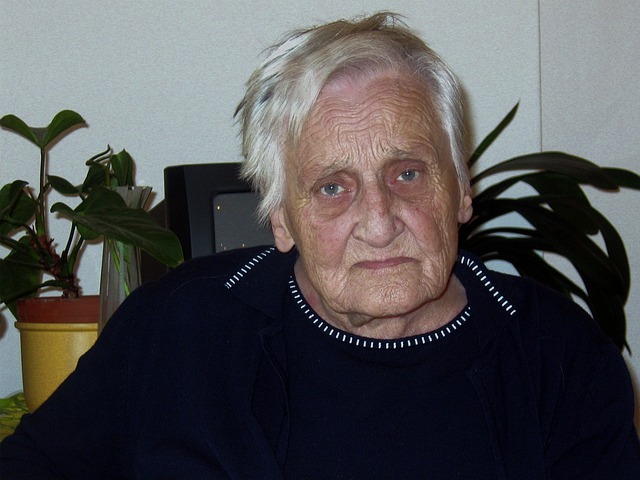Non-Medical Care in Robstown, TX: Save Money, Gain Peace of Mind
Experience superior Non-Medical Care in Robstown, Texas without straining your budget. At Best Perso…….
Welcome to an in-depth exploration of a transformative concept that has gained significant traction in recent years—Non-Medical Care Robstown, Texas. This innovative approach to healthcare delivery is reshaping the way services are provided, particularly in areas outside traditional medical facilities. In this article, we will navigate through various facets of Non-Medical Care Robstown Texas, from its foundational principles to its global impact and future potential. By delving into this topic, we aim to equip readers with a comprehensive understanding of its significance, challenges, and the vast possibilities it unlocks for improved healthcare accessibility.
What is Non-Medical Care?
Non-Medical Care, in the context of this article, refers to a range of healthcare services that do not involve direct medical or clinical interventions. It encompasses support and management strategies aimed at enhancing overall well-being, preventing illnesses, and promoting healthy lifestyles. This care model goes beyond traditional medicine, recognizing the multifaceted nature of health and its connection to social, environmental, and psychological factors.
Core Components:
Historical Context:
The concept of Non-Medical Care has evolved over time, gaining prominence in response to growing healthcare disparities and the increasing cost of traditional medical services. In the late 20th century, there was a shift from disease-centric care towards a more holistic approach, emphasizing prevention and wellness. This movement gained further momentum with advancements in technology, allowing for remote monitoring, digital health solutions, and personalized care models.
International Influence:
Non-Medical Care principles have resonated worldwide, leading to the implementation of similar initiatives across diverse cultures and healthcare systems. Countries like Australia, Canada, and several European nations have successfully integrated Non-Medical Care elements into their primary healthcare frameworks, resulting in improved population health outcomes and cost efficiency.
Key Global Trends:
Regional Variations:
The adoption and adaptation of Non-Medical Care models vary across regions, influenced by cultural norms, existing healthcare infrastructure, and economic factors:
Market Analysis:
The Non-Medical Care market is experiencing significant growth, driven by an aging population, increasing demand for preventive services, and the need to reduce healthcare costs. According to a report by Grand View Research, the global Non-Medical Care market size was valued at USD 371.2 billion in 2020 and is projected to grow at a compound annual growth rate (CAGR) of 8.5% from 2021 to 2028.
Cost Efficiency:
One of the most significant economic advantages of Non-Medical Care is its potential to reduce healthcare costs. By focusing on prevention and early intervention, this model can minimize the need for costly hospitalizations and emergency room visits. For example, a study in the United Kingdom found that investing in preventive care could lead to substantial long-term cost savings.
Job Creation:
The expansion of Non-Medical Care services contributes to job creation across various sectors, including healthcare professionals, community health workers, technology developers, and educators. This diversification of the healthcare workforce offers employment opportunities while enhancing service delivery.
Public-Private Partnerships:
Collaborations between public healthcare systems and private entities are becoming more common. These partnerships leverage resources and expertise, leading to innovative solutions and improved access to care. For instance, some countries have partnered with technology companies to develop digital health platforms, expanding Non-Medical Care reach.
Empowering Communities:
Community engagement is a cornerstone of successful Non-Medical Care initiatives. It fosters trust, ensures cultural sensitivity, and encourages active participation in health improvement efforts. When communities take ownership of their healthcare, it leads to more sustainable behavioral changes and improved health outcomes.
Local Resource Utilization:
Leveraging local resources, such as community centers, schools, and faith-based organizations, can enhance the reach and impact of Non-Medical Care programs. These settings provide familiar and accessible environments for educational sessions, support groups, and wellness activities.
Peer Support and Social Cohesion:
Community-based models often incorporate peer support networks, where individuals with shared experiences offer encouragement and guidance. This social aspect strengthens community bonds and provides a supportive network for health-related challenges.
Cultural Sensitivity:
Understanding cultural contexts is essential for effective Non-Medical Care delivery. Customizing programs to align with local beliefs and practices ensures better acceptance and participation, leading to more positive health outcomes.
Access and Equity:
One of the primary challenges in implementing Non-Medical Care is ensuring equal access, especially for marginalized communities and those living in remote areas. Addressing social determinants of health and overcoming geographical barriers are crucial for successful implementation.
Technology Integration:
While technology offers immense potential, reliable infrastructure and digital literacy are essential for effective utilization. Ensuring widespread access to technology and providing training to healthcare providers and community members can enhance the reach and quality of Non-Medical Care services.
Regulatory and Policy Frameworks:
Clear guidelines and supportive policies are necessary to facilitate the integration of Non-Medical Care into existing healthcare systems. Regulatory frameworks should promote innovation while ensuring patient safety and data privacy.
Sustainability:
Ensuring long-term sustainability requires continuous evaluation, adaptation, and resource allocation. Regular monitoring of program outcomes and community feedback can help identify areas for improvement and ensure that services remain relevant and effective over time.
Australia’s “Better Health” Program:
Australia’s national initiative, “Better Health,” focuses on preventive care and healthy lifestyles. It offers tailored programs, including diabetes management, mental health support, and chronic disease prevention. This community-based approach has led to improved health outcomes and reduced healthcare costs.
Canada’s Primary Care Model:
Canada’s family medicine model emphasizes holistic care, incorporating Non-Medical Care principles. Family physicians play a central role in coordinating care, providing preventive services, and managing chronic conditions. This integrated approach improves patient satisfaction and health outcomes.
Community Health Worker Programs (CHWs):
In many low-income countries, CHW programs have been instrumental in delivering essential healthcare services to underserved communities. Trained community members provide basic medical care, health education, and link individuals to higher-level healthcare facilities. This model has shown significant success in improving maternal and child health outcomes.
Emerging Technologies:
Advancements in artificial intelligence, virtual reality, and wearable health devices will further revolutionize Non-Medical Care. These technologies can enable more personalized interventions, enhance remote monitoring, and provide immersive educational experiences.
Precision Medicine:
The concept of precision medicine, which tailors healthcare to individual genetic profiles, aligns well with Non-Medical Care principles. By understanding unique genetic makeup, care plans can be customized to optimize health outcomes and minimize adverse reactions.
Global Collaboration:
Building upon successful global trends, future collaborations could lead to the development of standardized care models and digital tools, ensuring accessibility and cultural adaptability. International partnerships can facilitate knowledge sharing, research, and best practices.
Integrative Approaches:
Integrating Non-Medical Care with complementary therapies, such as mindfulness, yoga, and traditional healing practices, may offer holistic solutions for various health conditions. This integrative approach has shown promise in managing chronic pain, stress, and mental health issues.
Non-Medical Care represents a transformative approach to healthcare, shifting the focus from disease treatment to health promotion and prevention. By empowering communities, leveraging technology, and adopting evidence-based practices, this model has the potential to improve health outcomes, reduce costs, and enhance overall well-being. As we move forward, continuous evaluation, adaptation, and global collaboration will be vital to unlocking the full potential of Non-Medical Care and shaping a healthier future for all.

Experience superior Non-Medical Care in Robstown, Texas without straining your budget. At Best Perso…….

Revolutionize your life or that of a loved one in Robstown, Texas, with our top-quality non-medical…….

Looking for high-quality non-medical care in Robstown, Texas? Best Non-Medical Sitters offers a cost…….

Looking to save on senior care in Robstown, Texas? Discover the cost-effective solution with our non…….

Experience enhanced independence, safety, and quality of life in Robstown, Texas, with our top-tier…….

Tired of the daily struggle to prepare healthy meals in Robstown, Texas? Best Non-Medical Care is yo…….

Need affordable, non-medical care in Robstown, Texas? Our tailored approach saves you money while en…….

Tired of expensive medical bills and struggling to find a healthy, budget-friendly solution in Robst…….

Experience ultimate convenience and reclaim your precious time with our premier Non-Medical Care ser…….

Experience the superior care your loved ones deserve right at home in Robstown, Texas. Best Non-Medi…….